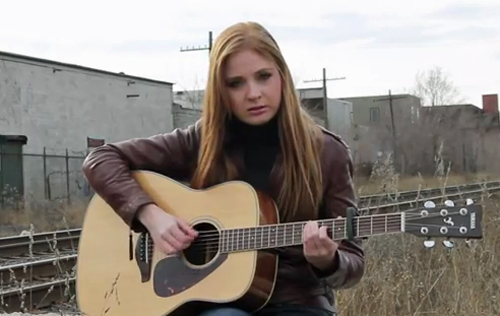
Do you feel you live in a sustainable way? Eighty percent of U of G students say they do, but director of sustainability Maurice Nelischer wants people to think more deeply about the question. Too many people think that recycling is all that’s needed. “Sustainability is about more than just recycling,” he says. “Recycling is really the low-hanging fruit. I want to get people thinking about doing more than they are doing now.”
Knowing that music provides a powerful connection, Nelischer started a contest in which students were required to rewrite the lyrics for “Are You Sure?” by the Staple Singers. Participants were expected to keep the chorus (which repeats the words “are you sure?”) but highlight sustainability issues in their rewritten verses. Nelischer explains that the “are you sure?” phrase is intended to get people questioning the sustainability of the way they live.
More sustainability questions will be discussed across campus during Sustainability Week from March 26 to 31. See http://www.guelphsustainabilityweek.com/ for details of the planned events.
While Nelishcher received many entries of written lyrics, fourth-year landscape architecture student Sarah Brown won the contest by going not one but several steps further. She not only wrote lyrics; she wrote new music for the song. “The original was a reggae style, and that’s not how I sing,” she explains. She also took photos and video clips to make a video for her entry.
“I must have done 200 takes of me singing the song to get it right,” Brown says. She used a program called Garage Band that allowed her to record separate tracks of her singing, playing the guitar and doing background vocals, and then combining them in the video. Photos and video clips were filmed around Hamilton and Ancaster (her home town).
Nelischer was impressed. “I think the amount of work she put in really shows her commitment to the issues,” he says. Brown was awarded a cash prize.
Brown says she wasn’t really thinking about winning as she worked on her video: “It was so much fun – I thought it was a great opportunity to be creative and get a message across. I did a lot of research as I put this together.”
She adds that sustainability concepts are an integral part of her studies and work. “Since beginning my studies here, my view of the world has changed. Now I see that it’s about thinking of others and balancing our present needs with the needs of people in the future. Everything we do has consequences, and we need to think of that before we start altering the world around us.”
For Brown, it was a job at a golf course three years ago that heightened her concerns. “I was shocked when I saw the amount of water and pesticides that were used,” she says. She adds that even the smooth, green lawn most house owners aspire to is not sustainable. “It may look perfect, but it’s not good for the environment. I used to design a lot of landscapes that involved lawns, but now my approach is different.”
Looking at Brown’s video and the lyrics submitted by others, Nelischer feels the contest accomplished what he’d hoped. “I wanted to get people excited and committed.” His next plan – he expects it to come to fruition in the fall – is to have a cartoon contest where students can use the free Xtranormal website to create short cartoon videos with a sustainability message.
One of the points he wants to make – and the subject of a recent TED Talk he gave – is that the things that actually make us happy are very compatible with sustainability, according to researchers. The four components of happiness Nelischer mentions are “fewer things, more experiences,” health, social connections and giving to others.
Nelischer also stresses that the message of sustainability is important for all parts of the University community. “I had someone say ‘Oh, I’m in fine arts, that’s nothing to do with us,’” he recalls.
That way of thinking concerns him. “I want thinking about sustainability to be a normal part of life,” Nelischer says. “I think too often people see it as something the scientists are going to take care of, but if we are looking for real change, we all have to be involved.”